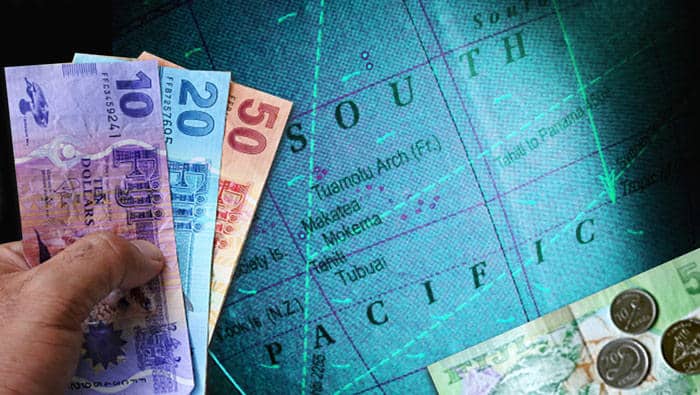While contributing very little to global warming, Pacific Island nations are among the most vulnerable to the impacts of climate change, already experiencing extreme climate-induced disasters such as tropical cyclones. These frequent climate shocks severely hinder development and result in damages worth millions of dollars. In 2016, Fiji was hit by category 5 tropical cyclone Winston, which impacted approximately 540,000 people – or around 62.5% of the country’s total population – with an estimated loss and damage of USD$ 1.3 billion. Tonga and Vanuatu were severely impacted by tropical cyclones Gita in 2018 and Pam in 2015, which caused damages that represented 37% and 64% of the countries’ GDP, respectively.
Part of this destruction can be reduced or avoided with appropriate allocation of climate finance that enables Pacific Islanders to build resilience against the impacts of climate change. However, accessing predictable and adequate sources of finance for adaptation initiatives from dedicated global funds such as the Green Climate Fund (GCF) continues to be a challenge for Pacific Island Countries (PICs). A recent report published by the Organisation for Economic Co-operation and Development (OECD) indicates that only 1% of global climate finance flows reach the Pacific. Bilateral sources account for the vast majority of climate financing in PICs (around 87%), but a majority is channeled to sector-level investments and a very small percentage is allocated to locally-driven projects. This ongoing conundrum has prompted Pacific Islands Forum (PIF) leaders to urge its members to explore innovative and alternative funding sources.
Despite the significance of remittance flows to the Pacific region, their potential as a source of climate finance is still largely unexplored. Personal remittances from Pacific migrants and diaspora make up a critical source of development finance – representing more than three times Official Development Assistance (ODA), and in many cases – two to three times more than Foreign Direct Investment (FDI). In Fiji, Tonga, and Vanuatu, remittances account for 7.9%, 39%, and 10.9% of their GDP, respectively, some of the highest in the world and, in the case of Tonga, the highest.
Remittances constitute a source of financing that has proved to be predictable, sustainable, and able to penetrate vulnerable and hard-to-reach households. These characteristics are particularly important for climate resilience initiatives as the impacts of climate change are most severely felt at the community level where the ability to prepare, adapt, and “build back better” is still insufficient due to limited access to finance. Pacific migrants and diaspora can thus play a critical role as enablers of community-led adaptation.
For the past year, BASE and Oxfam in the Pacific have led a feasibility study with funding support of Convergence to assess the potential of channeling personal remittances from migrants and diaspora in Australia and New Zealand/Aotearoa towards investments in sustainable and resilient solutions for their families and communities in Fiji, Tonga, and Vanuatu.
According to the community consultations, Pacific migrants and diaspora already support disaster relief and recovery efforts after natural hazards and climate-induced disasters hit their homeland. Almost half of remittance receivers surveyed from Fiji, Tonga, and Vanuatu received financial support from their family abroad to rebuild their homes after being damaged or destroyed by tropical storms and cyclones. Housing was identified as one of the most affected resources, along with farming land and water, and therefore resilient prefabricated houses and water tanks were the preferred resilient infrastructure solution by communities.
The idea of investing part of remittances in preventive measures that will help communities cope with the next cyclone season was perceived with great enthusiasm: migrants want to support beyond recovery and protect their families from the impacts of climate change, while Pacific Islanders believe their family abroad is better suited to face the costs of investing in sustainable and resilient infrastructure solutions.
With results from community consultations and further analyses, the consortium designed a market-based mechanism that could simultaneously advance SDG 13 (climate action) and SDG 10 (reduced inequalities), among other SDGs. The mechanism enables remittance senders to purchase selected climate resilience infrastructure for their families and communities in the targeted Pacific Island nations. Such a mechanism has the potential to benefit almost 50,000 people and mobilize around USD$25 million in climate-resilient solutions after five years of implementation.
This impact will be further scaled up by partnering with remittance service providers that bear lower transaction fees and linking remittances to other financial instruments that will make the solutions more accessible such as loans, crowdfunding, and blended finance. Tapping into the potential of remittances as an existing and effective social safety net will enable the most vulnerable citizens, particularly women and children, to build resilience against climate change.
